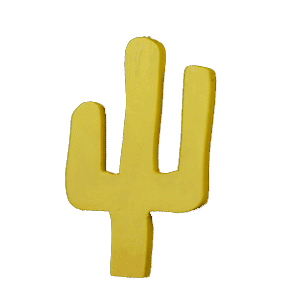
Gifs
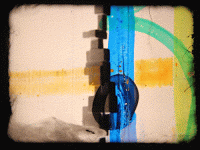

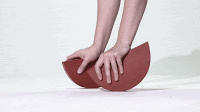
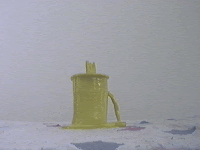
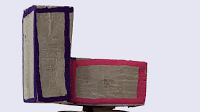
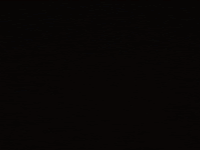


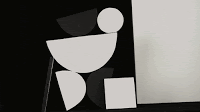



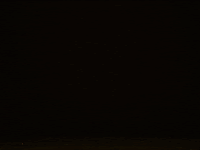
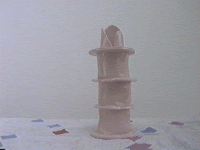
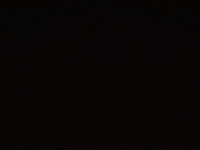
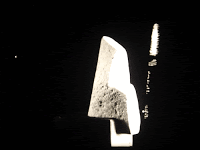

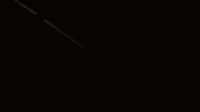

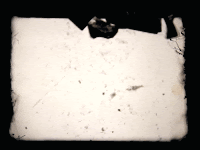
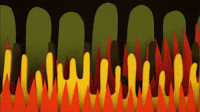

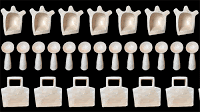
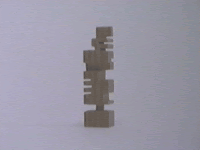
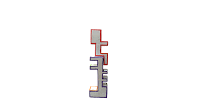
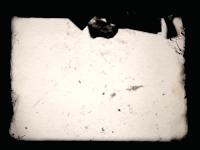
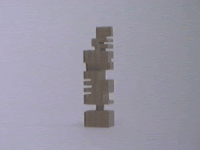
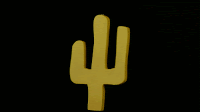
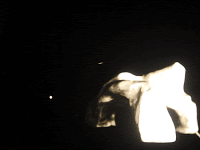
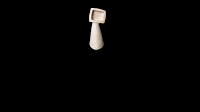

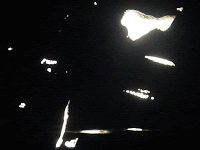
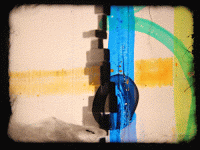
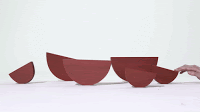

Included within the submission are two sets of animated gifs, one set made for the online artist’s project space www.skelf.org , another for the opening of the Brighton Photo Fringe 2018 and eleven short films made during a workshop with undergraduates at Kingston School of Art.
During a workshop I ran with undergraduate art students at Kingston School of Art in 2018, I asked students to download and work in groups to refilm these animated images, uploading the results to Instagram. In a relatively short time (twenty minutes) a series of new films was created, the students responding to the images and refilming them in a number of ways, including holding the images up in front of their faces, positioning them in places around campus, using mirrors to create doubling effects and placing them on different coloured backgrounds matching those of the on-screen sculptures.

Instagram posts from the refilming gifs workshop Kingston School of Art, 2018
These experiments revealed the importance of workshops and participation to the research, and their facility to offer ways in which the form of presentation might enable different types of engagement with the research material. Rather than the assumption being that these films, as art works, were the result of the artist’s creative process as an end point, the reception of the work could be inscribed into the making process. Invited to experience film works in different combinations or on different devices; alongside elliptical texts; or to take part practically in the making or presentation process, the viewer becomes actively involved in the research process.
This challenges conventional modes of making, viewing and understanding sculptural and film practice as characterised by a separation of process and product. Importantly, research is taking place at every stage, as each new context allows for fresh discoveries to be made. In this respect the researcher is not working towards an ‘output’, in the sense of a final artwork (for example), rather, the research is constituted in its openness to diverse possibilities, and in finding ways of bringing others into the process, not to display findings abstracted from the art making process, but involving them in the process of questioning, exploration and individual discovery.



































Images from Brighton Photo Fringe Opening
Included within the submission are two sets of animated gifs, one set made for the online artist’s project space www.skelf.org , another for the opening of the Brighton Photo Fringe 2018 and eleven short films made during a workshop with undergraduates at Kingston School of Art.
During a workshop I ran with undergraduate art students at Kingston School of Art in 2018, I asked students to download and work in groups to refilm these animated images, uploading the results to Instagram. In a relatively short time (twenty minutes) a series of new films was created, the students responding to the images and refilming them in a number of ways, including holding the images up in front of their faces, positioning them in places around campus, using mirrors to create doubling effects and placing them on different coloured backgrounds matching those of the on-screen sculptures.

Instagram posts from the refilming gifs workshop Kingston School of Art, 2018
These experiments revealed the importance of workshops and participation to the research, and their facility to offer ways in which the form of presentation might enable different types of engagement with the research material. Rather than the assumption being that these films, as art works, were the result of the artist’s creative process as an end point, the reception of the work could be inscribed into the making process. Invited to experience film works in different combinations or on different devices; alongside elliptical texts; or to take part practically in the making or presentation process, the viewer becomes actively involved in the research process.
This challenges conventional modes of making, viewing and understanding sculptural and film practice as characterised by a separation of process and product. Importantly, research is taking place at every stage, as each new context allows for fresh discoveries to be made. In this respect the researcher is not working towards an ‘output’, in the sense of a final artwork (for example), rather, the research is constituted in its openness to diverse possibilities, and in finding ways of bringing others into the process, not to display findings abstracted from the art making process, but involving them in the process of questioning, exploration and individual discovery.